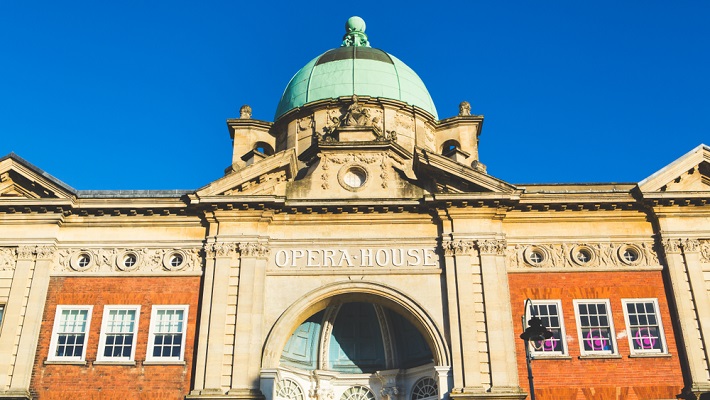
Why have so many Bingo Halls become Pubs?
In Ilkeston, Derbyshire, a beautiful, Grade II listed art deco building lies derelict, having been vacant for over four years. The old cinema and bingo hall is a bright spot on South Street, but the building is wasted.
Now, planning has been submitted to turn this fantastic, historical edifice into a Wetherspoons pub. This may sound unusual, but it’s actually strikingly common. Many of the nation’s grandest and most interesting pubs used to be bingo halls. We explore why that is and which are the best pubs which were once homes to the brilliant game of bingo.
A Very British History – Music Hall
To get to the heart of our question, you need to look back at over a century of British history. Doing so paints both an uplifting picture but also a rather sad one. It’s a story of renewal but also a story of decline.
The Victorian era saw the birth of the Music Hall tradition. Thousands of Brits flocked to pavilions and theatres that sprang up in the 19th century to see various types of theatrical entertainment, music and comedy shows. These grand auditoriums could sometimes seat thousands of people and were often designed in baroque or neoclassical styles.
Even as this form of entertainment declined in the early 20th century, the variety show form continued to be popular and venues continued to spring up.
A Moving Picture – Birth of Cinema
Soon after, film became an incredibly popular medium and people were heading to the cinema. Some of these amazing buildings were converted to cinemas, as well as many new buildings built in the art-deco style of the 1920s.
Driven by decades of cultural evolution and entertainment, hundreds of beautiful buildings appeared in Britain’s towns and cities, many now grade-listed.
Bingo fills the Seats
As demand for these forms of entertainment shrank, many of the buildings became bingo halls in the mid-20th century. Some remained bingo halls or even casinos for decades. If you came across an art-deco building on your local high street, chances are it was a former theatre or cinema turned bingo hall.
Unfortunately, many of these buildings became derelict at the turn of the 20th Century as entertainment habits shifted again and bingo halls were no longer the hubs of local communities that they once were.
It’s likely that there are now fewer than half the number of active bingo halls in the UK than there were around the year 2000. Many factors have contributed to this decline from the indoor smoking ban to the rise of online bingo. As we’ve seen from the history of the Victorian theatre, sometimes cultural habits just shift. It is inevitable as time!
Last Orders?
In the past couple of decades, pub groups like Wetherspoons have routinely converted these often vacant, historical buildings into drinking establishments. They are restored tastefully and accurately to the period, and many have even won architectural and design awards. Not only have they snapped up and restored old bingo halls, but also banks, churches and even a swimming pool!
Just some of the UK’s most popular bingo halls turned pubs include:
- The Godfrey Morgan, Newport
- Royal Victoria Pavilion, Ramsgate
- The Playhouse, Colchester
- Opera House, Royal Tunbridge Wells
- The Capital, Forest Hill, London
- Coronation Hall, Surbiton
- The Palladium, Llandudno
The conversion of the Royal Victoria Pavilion in Ramsgate began in 2016 and cost millions of pounds. But when the pub opened in 2017 to great acclaim, it officially became the nation’s largest pub. A quite impressive achievement!
What’s next for Bingo Halls?
Though bingo halls tend not to be housed in such magnificent edifices, it’s not all bad for bricks and mortar bingo. Brands like Buzz Bingo, Mecca Bingo, Majestic Bingo and Club 3000 continue to open new establishments around the country. Who knows, maybe it will come full circle and these Grade II listed buildings will hear the sounds of daubing and silly bingo calls once again… we can dare to dream!































